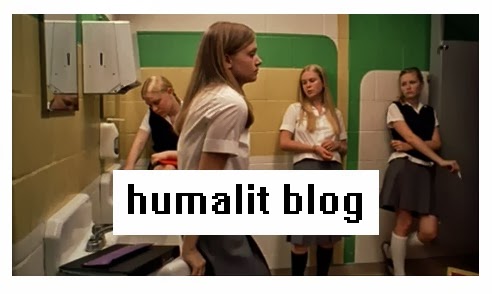Back to the story, at first I was fascinated by how Casocot narrated by the character of Jaguar. His mother is wary of him because he is sort of an unwanted child because of the circumstances of his birth. The mother, stricken with sorrow, does nothing but watch movies. I think that Jaguar or Travis is a very observant character. The shocking bit, (SPOILER ALERT) that the grandfather was actually the father of the child, was very shocking indeed since it was subtly clued in the story. But I think that the clues were very vital and shocking as well that I think that I might have clued in a little on the real deal but didn't not dwell much on it. The real issue was actually the identity of Jaguar's father. Since, I might have focused on the movie references quite a bit, I didn't notice its importance.
I liked this story a lot. It's one of my favorites readings in our humalit class.
